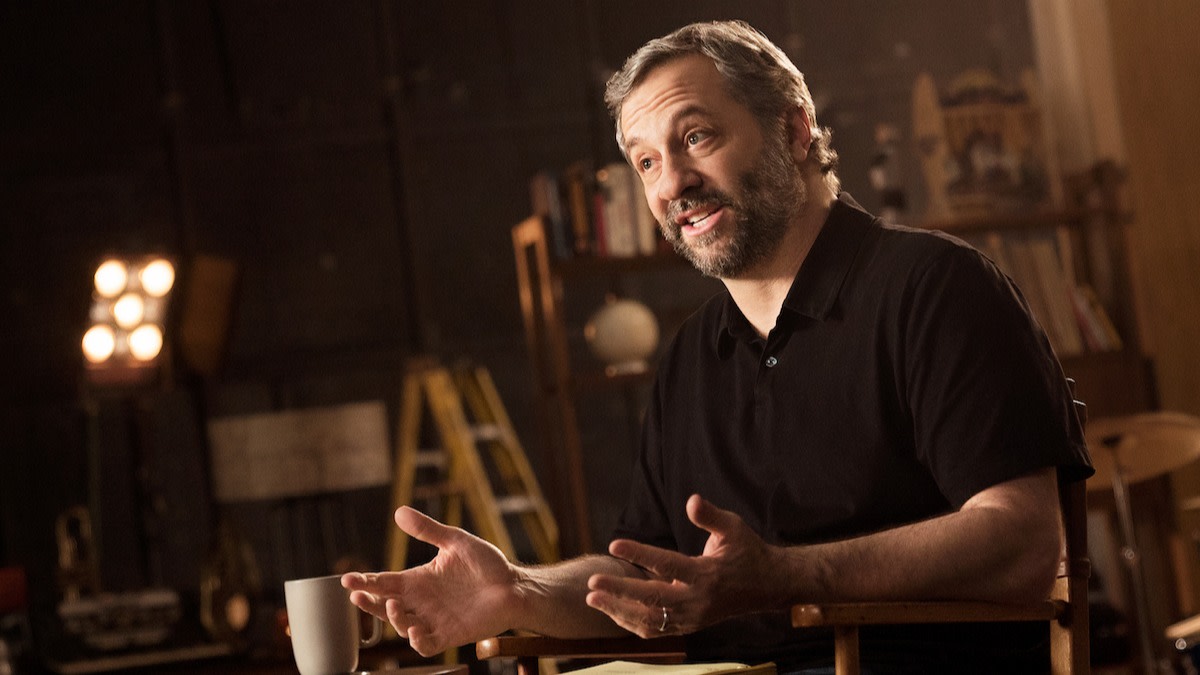Judd Apatow’s Tips for Setting Up Comedic Moments in Film
Written by MasterClass
Last updated: Jun 7, 2021 • 3 min read
Director, comic, and screenwriter Judd Apatow knows that comedic timing in movies is crucial. Here are his tips for timing comic relief.
Learn From the Best
When writing comedy movies, great timing is everything. Every scene is a carefully constructed moment that shows or reveals something funny, while also taking into consideration the story arc and emotional character development. Judd Apatow, a successful director, stand-up comic, and comedy writer, shares his tips for the best ways to structure comedic moments in film.
A Brief Introduction to Judd Apatow
Judd Apatow is considered one of the most sought-after comedy minds in the business. He has been closely associated with many of the biggest comedy films and hit television shows over the last decade and a half. Apatow has written and directed such films as The 40-Year-Old Virgin, Knocked Up, and Funny People. He directed Trainwreck and produced Superbad, Bridesmaids, Pineapple Express, and both Anchorman films. Apatow also executive produced the multi-award-winning HBO series Girls, Freaks and Geeks, Undeclared, The Ben Stiller Show, and co-executive produced The Larry Sanders Show. Most recently, Apatow released The Zen Diaries of Garry Shandling which chronicles the life and spirituality of comedian Garry Shandling.
Judd Apatow’s Tips for Structuring Comedic Moments in Film
Comedy films should make people laugh. Not all forms of comedy work for every audience, but there are certain guidelines you can follow to punch-up the punchlines in your own screenwriting, and turn good jokes into great jokes. Check out a few of Judd’s tips for structuring comedic moments in film:
- 1. Serve a purpose. You can take a left turn for comedy in any movie, (even in the middle of dramatic action) but it works much better when it’s serving something. When comic relief serves the overall story or main character, it’s funnier. Filling your feature film with comedic moments is integral to comedy screenwriting, however, focusing too deeply on these moments may cause you to lose the thread of your storyline—which is something you want to avoid as a filmmaker. Comedy should progress the storyline in a way that furthers the premise, while also making the audience laugh.
- 2. Establish your characters. Judd likes to take enough time in the first act of his movies to set up who his characters are and tell the audience everything they need to know about them. Once you’ve set up the interior lives of your main characters, that’s when a problem should land. In many of Judd’s movies, the “problem” is something that works in direct conflict to the character. In Knocked Up (2007) an immature man who loves to party and have fun is suddenly faced with the news that he is going to be a father. In The 40-Year-Old Virgin (2005), a shy, older virgin inadvertently reveals to his co-worker that he has never had sex before, which prompts them to go on a mission to help him lose his virginity. The initial introduction of your main characters and their interior lives allows comedic moments about their situation to land much harder.
- 3. Space set pieces thoughtfully. A set piece is an extended sequence with some energy that contains a lot of laughs—the big laughs of the movie. For comedy movies, Judd has found that about every 10 to 15 minutes in a film, he wants something “special and hysterical” to happen—a “tear down the house” moment. This helps him figure out the pacing and placement of his set pieces. There’s one rule you should follow regarding set pieces: you need one in the last 10 minutes of the film (and it should be one of the best and biggest ones). A film’s resolution needs to be as funny as its best scenes.
- 4. Make it funnier. If the comic elements of your set pieces aren’t as funny as they can be, brainstorm new ways to bring more comedy to the moment or emphasize the comedic timing. Set pieces work best when they present the most amazing and funny thing that can happen at that moment. Revisit your scenes to see if there are any opportunities to add more comedic elements to the story.
Want to Learn More About Film?
Become a better filmmaker with the MasterClass Annual Membership. Gain access to exclusive video lessons taught by film masters, including Judd Apatow, Spike Lee, David Lynch, Shonda Rhimes, Steve Martin, Martin Scorsese, and more.
